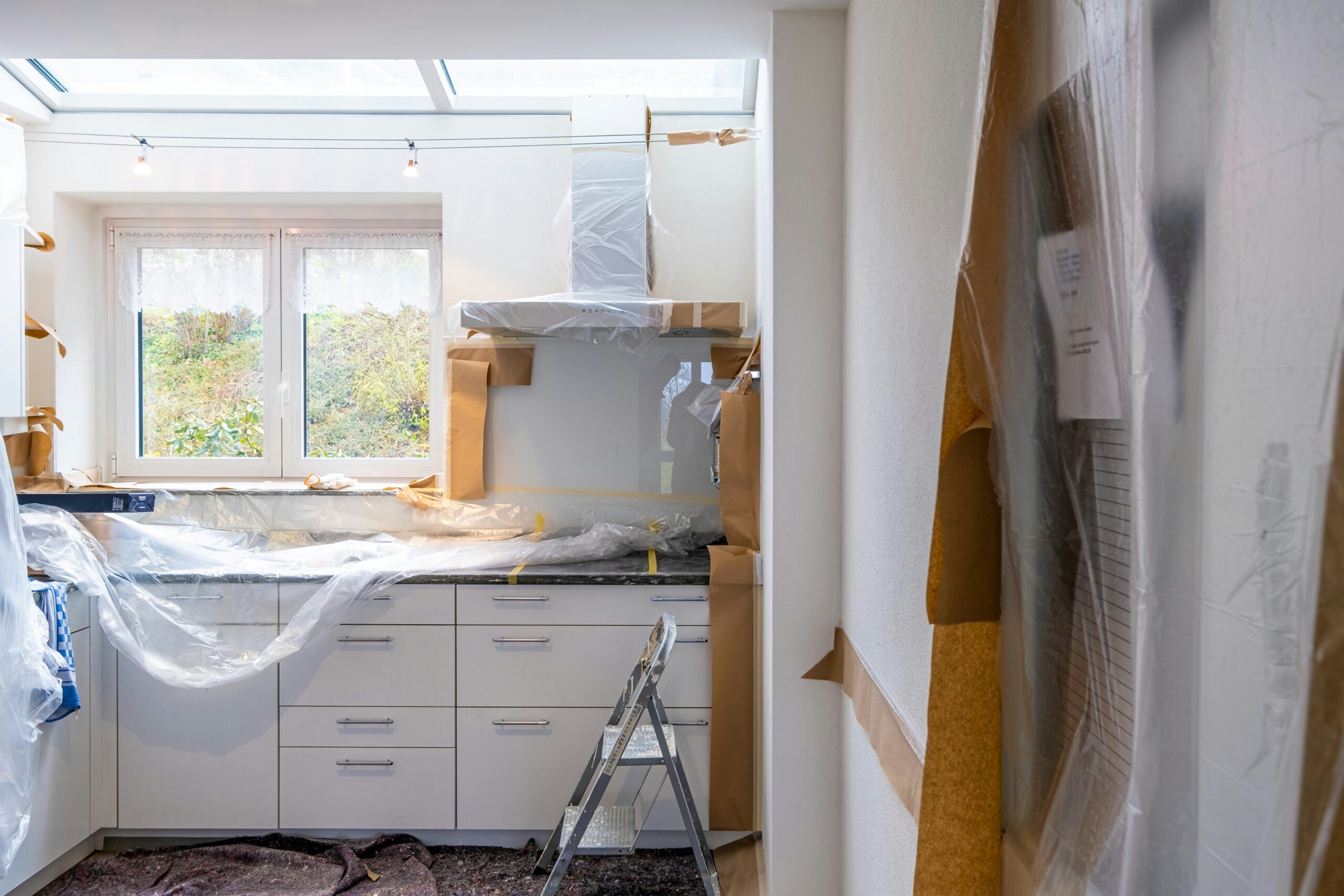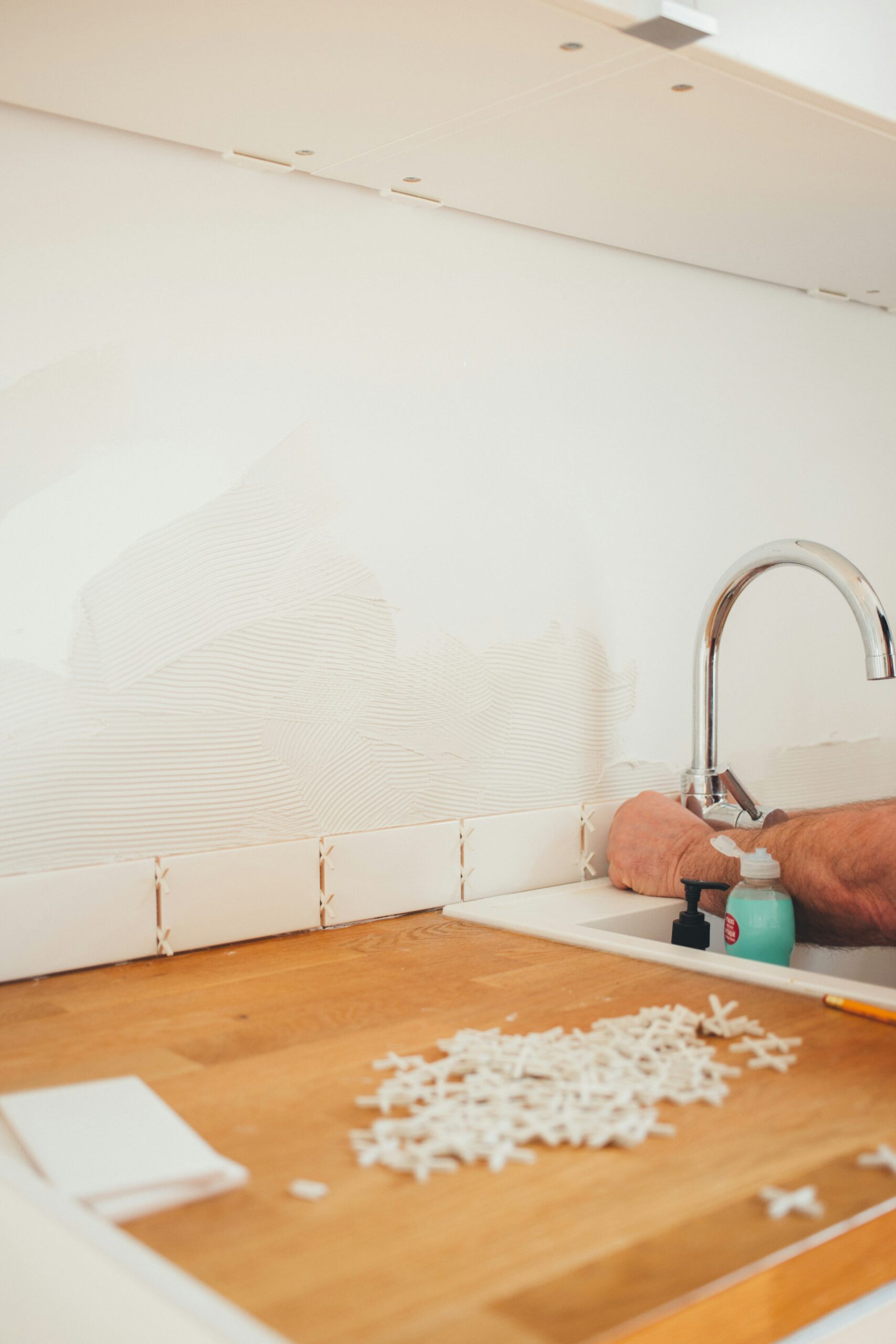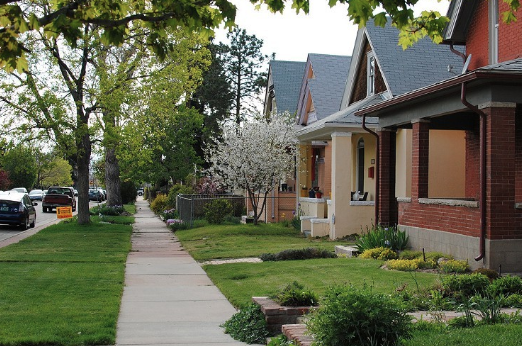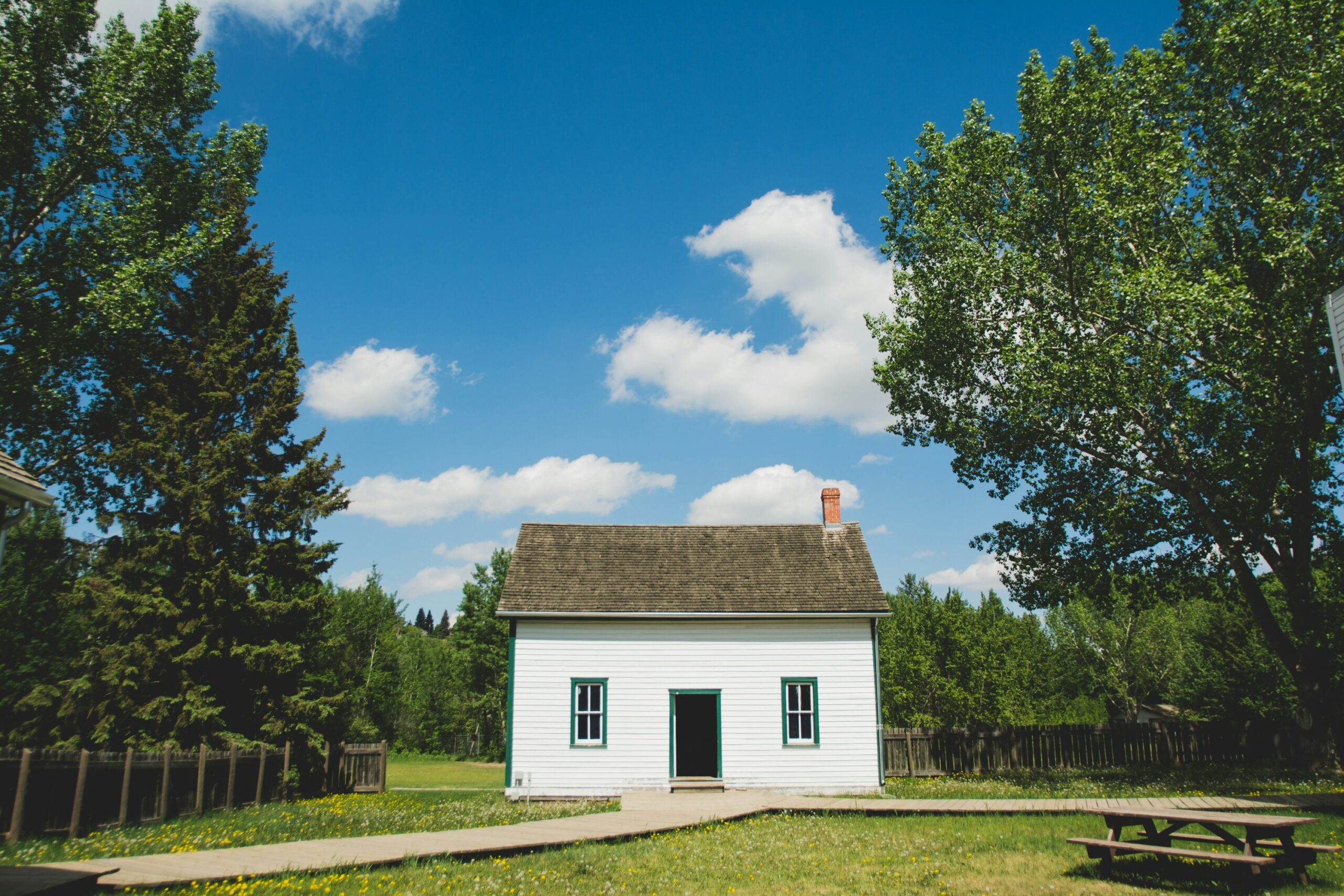The Hidden Costs of DIY Renovations (And When to Call a Pro)
July 7, 2025
The Hidden Costs of DIY Renovations (And When to Call a Pro)
July 7, 2025
Pinterest makes it look so easy. Watch a few YouTube videos, buy some tools, and transform your kitchen over the weekend, right? As both a General Contractor and Realtor in Denver, I’ve seen the reality of DIY renovations—and it’s not always as simple or cost-effective as social media suggests.
Don’t get me wrong—I’m not anti-DIY. There are plenty of projects that savvy homeowners can tackle successfully. But I’ve also been called in to fix countless DIY disasters that ended up costing far more than hiring a professional from the start. Let me share the real costs of DIY renovations and help you decide when to grab your tools and when to grab your phone.
The True Cost of DIY: More Than Just Materials
When most homeowners calculate DIY costs, they focus on materials and maybe tool rental. But the real cost includes factors that are easy to overlook until you’re knee-deep in a project that’s gone sideways.
Time Investment Reality
That weekend kitchen backsplash project? Plan on two to three weekends, minimum. Most DIY projects take two to four times longer than anticipated, especially for first-time renovators. Your time has value—if you’re spending every weekend for two months on a bathroom renovation, calculate what that time is worth to you and your family.
Tool and Equipment Costs
Quality tools aren’t cheap, and using the wrong tools often leads to poor results or safety issues. A tile saw rental might cost $50 per day, but if your project stretches from one weekend to four, you’re looking at $200-400 just in tool rental. For many projects, buying quality tools costs more than the labor savings.
Learning Curve Expenses
Everyone makes mistakes when learning new skills, but renovation mistakes can be expensive. That crooked tile you have to remove and replace, the drywall you cut too big, the paint you mixed wrong—these “learning experiences” add up quickly in both materials and time.
Permit and Code Compliance
Many DIY enthusiasts skip permits, thinking they’ll save money and hassle. But unpermitted work can create serious problems when selling your home. Denver’s building codes are strict, and work that doesn’t meet code standards can force you to tear out and redo entire projects. I’ve seen homeowners spend thousands fixing unpermitted electrical work that failed inspection during a home sale.
Projects That Make Sense for DIY
Painting and Decorating
Interior painting is one of the best DIY projects for most homeowners. The skills are learnable, mistakes are fixable, and the cost savings are significant. Exterior painting can also be DIY-friendly for single-story homes, though Denver’s intense UV rays make paint selection and preparation crucial.
Basic Landscaping and Gardening
Planting, mulching, and basic yard work are perfect for DIY enthusiasts. You’ll save significantly on labor costs, and mistakes aren’t usually expensive to fix. Just be careful about major tree removal or anything involving irrigation systems.
Simple Flooring Projects
Laminate and luxury vinyl plank flooring are designed for DIY installation. The tools required are minimal, and most manufacturers provide excellent installation guides. However, be realistic about your space—complex layouts with lots of cuts might be better left to professionals.
Basic Bathroom Updates
Painting, replacing fixtures like faucets and towel bars, and updating accessories are all manageable DIY projects. You’ll save on labor costs while gaining experience with basic home improvement skills.
When DIY Becomes Expensive
Kitchens involve plumbing, electrical, and often structural work. A simple cabinet replacement can quickly become complex when you discover outdated wiring or plumbing that doesn’t meet current codes. The coordination required between different trades makes this challenging even for experienced DIYers.
Waterproofing is critical in bathrooms, and mistakes lead to expensive water damage. Tile work looks simple but requires skill to achieve professional results. Plumbing and electrical work in wet areas has strict code requirements that are easy to get wrong.
Electrical Work
Denver’s electrical codes are comprehensive and strictly enforced. Incorrect electrical
work isn’t just expensive to fix—it’s dangerous. Even simple additions like new outlets often require permits and professional installation.
Roofing Projects
Colorado’s weather is tough on roofs, and proper installation is crucial for preventing leaks and ice damage. Roofing work is also dangerous, and insurance may not cover injuries from DIY roofing accidents. The cost of professional installation is usually worth the peace of mind.
The Hidden Costs That Surprise DIYers
Fixing Mistakes
I’ve been called in to fix DIY projects gone wrong more times than I can count. Common issues include uneven tile work, improperly installed plumbing that leaks, electrical work that doesn’t meet code, and structural modifications that compromise safety. Fixing these problems often costs more than professional installation would have initially.
Project Delays and Frustration
When your kitchen renovation stretches from two weeks to two months, you’re eating takeout and washing dishes in the bathroom sink. The stress and inconvenience of extended project timelines affects your entire family and often leads to rushed decisions that compromise quality.
Resale Value Impact
Poor workmanship is obvious to potential buyers and can actually decrease your home’s value. Crooked tile, uneven paint lines, or obviously amateur work sends red flags to buyers about what other corners might have been cut.
Insurance and Warranty Issues
Professional work comes with warranties and insurance coverage. DIY work doesn’t. If your DIY plumbing project causes water damage six months later, you’re responsible for all repair costs. Professional contractors carry insurance specifically to protect against these scenarios.
Denver-Specific Considerations
Altitude and Climate Challenges
Our altitude affects everything from paint drying times to how materials expand and contract. Professional contractors understand these local conditions and adjust their techniques accordingly. DIYers often don’t account for these factors, leading to premature failure.
Building Code Complexity
Denver’s building codes are detailed and frequently updated. Professional contractors stay current with code changes and inspection requirements. DIYers often discover code issues only when projects fail inspection, requiring expensive rework.
Material Selection
Colorado’s intense UV rays, temperature swings, and occasional severe weather require specific material choices. Professionals know which products perform well in our climate and which ones fail prematurely.
Making Smart DIY Decisions
Start Small and Build Skills
Begin with low-risk projects like painting or simple landscaping. Build your skills and tool collection gradually rather than jumping into complex renovations.
Know Your Limits
Be honest about your skill level, available time, and tolerance for frustration. A project that excites you initially might become a source of stress if it drags on for months.
Budget for Professional Help
Even on DIY projects, budget for professional consultation or assistance with complex aspects. Having an electrician rough in new circuits while you handle the painting and finishing work can be a smart compromise.
Consider Hybrid Approaches
Many successful renovations combine DIY and professional work. You might handle demolition and painting while hiring professionals for plumbing and electrical work. This approach saves money while ensuring critical work is done correctly.
When Professional Installation Pays Off
Complex Projects with Multiple Trades
Kitchen and bathroom renovations typically involve plumbing, electrical, and sometimes structural work. Coordinating these trades and ensuring everything works together requires experience and expertise.
Time-Sensitive Projects
If you need your renovation completed quickly, professional contractors have the experience and workforce to meet deadlines. DIY projects almost always take longer than expected.
High-Stakes Installations
When mistakes are expensive or dangerous, professional installation is worth the cost. This includes roofing, major electrical work, structural modifications, and complex plumbing projects.
Warranty and Insurance Protection
Professional work comes with warranties and insurance coverage that protect your investment. For major renovations, this protection is valuable insurance against future problems.
The Bottom Line: Smart Renovation Decisions
The key to successful renovations isn’t choosing between DIY and professional work—it’s making smart decisions about which approach fits each specific project and your situation. Consider your skills, available time, project complexity, and the cost of mistakes when making these decisions.
Remember that your time has value, and the stress of a project gone wrong affects your entire family. Sometimes paying for professional work is the smart financial decision, even when DIY seems cheaper initially.
Ready to Plan Your Next Renovation?
Whether you’re considering a DIY project or planning to hire professionals, I can help you make smart decisions that protect your investment and achieve your goals. As both a General Contractor and Realtor, I understand both the technical requirements and the market value implications of different renovation approaches.
Schedule Your Renovation Planning Consultation:
- Assess which aspects of your project are suitable for DIY
- Get accurate cost estimates for professional work
- Understand permit requirements and code compliance issues
- Develop a realistic timeline and budget for your renovation
Kitchen renovations consistently rank as one of the most popular and valuable home improvement projects, and for good reason. A well-executed kitchen remodel can transform your daily living experience while [...]
Fixer-uppers can be fantastic opportunities to build equity and create your dream home at a lower entry price. As both a General Contractor and Realtor in Denver, I've helped countless [...]
Timing can make a significant difference in how quickly your Denver home sells and the price you receive. As both a Realtor and General Contractor who's helped countless homeowners navigate [...]
Pinterest makes it look so easy. Watch a few YouTube videos, buy some tools, and transform your kitchen over the weekend, right? As both a General Contractor and Realtor in Denver, I’ve seen the reality of DIY renovations—and it’s not always as simple or cost-effective as social media suggests.
Don’t get me wrong—I’m not anti-DIY. There are plenty of projects that savvy homeowners can tackle successfully. But I’ve also been called in to fix countless DIY disasters that ended up costing far more than hiring a professional from the start. Let me share the real costs of DIY renovations and help you decide when to grab your tools and when to grab your phone.
The True Cost of DIY: More Than Just Materials
When most homeowners calculate DIY costs, they focus on materials and maybe tool rental. But the real cost includes factors that are easy to overlook until you’re knee-deep in a project that’s gone sideways.
Time Investment Reality
That weekend kitchen backsplash project? Plan on two to three weekends, minimum. Most DIY projects take two to four times longer than anticipated, especially for first-time renovators. Your time has value—if you’re spending every weekend for two months on a bathroom renovation, calculate what that time is worth to you and your family.
Tool and Equipment Costs
Quality tools aren’t cheap, and using the wrong tools often leads to poor results or safety issues. A tile saw rental might cost $50 per day, but if your project stretches from one weekend to four, you’re looking at $200-400 just in tool rental. For many projects, buying quality tools costs more than the labor savings.
Learning Curve Expenses
Everyone makes mistakes when learning new skills, but renovation mistakes can be expensive. That crooked tile you have to remove and replace, the drywall you cut too big, the paint you mixed wrong—these “learning experiences” add up quickly in both materials and time.
Permit and Code Compliance
Many DIY enthusiasts skip permits, thinking they’ll save money and hassle. But unpermitted work can create serious problems when selling your home. Denver’s building codes are strict, and work that doesn’t meet code standards can force you to tear out and redo entire projects. I’ve seen homeowners spend thousands fixing unpermitted electrical work that failed inspection during a home sale.
Projects That Make Sense for DIY
Painting and Decorating
Interior painting is one of the best DIY projects for most homeowners. The skills are learnable, mistakes are fixable, and the cost savings are significant. Exterior painting can also be DIY-friendly for single-story homes, though Denver’s intense UV rays make paint selection and preparation crucial.
Basic Landscaping and Gardening
Planting, mulching, and basic yard work are perfect for DIY enthusiasts. You’ll save significantly on labor costs, and mistakes aren’t usually expensive to fix. Just be careful about major tree removal or anything involving irrigation systems.
Simple Flooring Projects
Laminate and luxury vinyl plank flooring are designed for DIY installation. The tools required are minimal, and most manufacturers provide excellent installation guides. However, be realistic about your space—complex layouts with lots of cuts might be better left to professionals.
Basic Bathroom Updates
Painting, replacing fixtures like faucets and towel bars, and updating accessories are all manageable DIY projects. You’ll save on labor costs while gaining experience with basic home improvement skills.
When DIY Becomes Expensive
Kitchens involve plumbing, electrical, and often structural work. A simple cabinet replacement can quickly become complex when you discover outdated wiring or plumbing that doesn’t meet current codes. The coordination required between different trades makes this challenging even for experienced DIYers.
Waterproofing is critical in bathrooms, and mistakes lead to expensive water damage. Tile work looks simple but requires skill to achieve professional results. Plumbing and electrical work in wet areas has strict code requirements that are easy to get wrong.
Electrical Work
Denver’s electrical codes are comprehensive and strictly enforced. Incorrect electrical
work isn’t just expensive to fix—it’s dangerous. Even simple additions like new outlets often require permits and professional installation.
Roofing Projects
Colorado’s weather is tough on roofs, and proper installation is crucial for preventing leaks and ice damage. Roofing work is also dangerous, and insurance may not cover injuries from DIY roofing accidents. The cost of professional installation is usually worth the peace of mind.
The Hidden Costs That Surprise DIYers
Fixing Mistakes
I’ve been called in to fix DIY projects gone wrong more times than I can count. Common issues include uneven tile work, improperly installed plumbing that leaks, electrical work that doesn’t meet code, and structural modifications that compromise safety. Fixing these problems often costs more than professional installation would have initially.
Project Delays and Frustration
When your kitchen renovation stretches from two weeks to two months, you’re eating takeout and washing dishes in the bathroom sink. The stress and inconvenience of extended project timelines affects your entire family and often leads to rushed decisions that compromise quality.
Resale Value Impact
Poor workmanship is obvious to potential buyers and can actually decrease your home’s value. Crooked tile, uneven paint lines, or obviously amateur work sends red flags to buyers about what other corners might have been cut.
Insurance and Warranty Issues
Professional work comes with warranties and insurance coverage. DIY work doesn’t. If your DIY plumbing project causes water damage six months later, you’re responsible for all repair costs. Professional contractors carry insurance specifically to protect against these scenarios.
Denver-Specific Considerations
Altitude and Climate Challenges
Our altitude affects everything from paint drying times to how materials expand and contract. Professional contractors understand these local conditions and adjust their techniques accordingly. DIYers often don’t account for these factors, leading to premature failure.
Building Code Complexity
Denver’s building codes are detailed and frequently updated. Professional contractors stay current with code changes and inspection requirements. DIYers often discover code issues only when projects fail inspection, requiring expensive rework.
Material Selection
Colorado’s intense UV rays, temperature swings, and occasional severe weather require specific material choices. Professionals know which products perform well in our climate and which ones fail prematurely.
Making Smart DIY Decisions
Start Small and Build Skills
Begin with low-risk projects like painting or simple landscaping. Build your skills and tool collection gradually rather than jumping into complex renovations.
Know Your Limits
Be honest about your skill level, available time, and tolerance for frustration. A project that excites you initially might become a source of stress if it drags on for months.
Budget for Professional Help
Even on DIY projects, budget for professional consultation or assistance with complex aspects. Having an electrician rough in new circuits while you handle the painting and finishing work can be a smart compromise.
Consider Hybrid Approaches
Many successful renovations combine DIY and professional work. You might handle demolition and painting while hiring professionals for plumbing and electrical work. This approach saves money while ensuring critical work is done correctly.
When Professional Installation Pays Off
Complex Projects with Multiple Trades
Kitchen and bathroom renovations typically involve plumbing, electrical, and sometimes structural work. Coordinating these trades and ensuring everything works together requires experience and expertise.
Time-Sensitive Projects
If you need your renovation completed quickly, professional contractors have the experience and workforce to meet deadlines. DIY projects almost always take longer than expected.
High-Stakes Installations
When mistakes are expensive or dangerous, professional installation is worth the cost. This includes roofing, major electrical work, structural modifications, and complex plumbing projects.
Warranty and Insurance Protection
Professional work comes with warranties and insurance coverage that protect your investment. For major renovations, this protection is valuable insurance against future problems.
The Bottom Line: Smart Renovation Decisions
The key to successful renovations isn’t choosing between DIY and professional work—it’s making smart decisions about which approach fits each specific project and your situation. Consider your skills, available time, project complexity, and the cost of mistakes when making these decisions.
Remember that your time has value, and the stress of a project gone wrong affects your entire family. Sometimes paying for professional work is the smart financial decision, even when DIY seems cheaper initially.
Ready to Plan Your Next Renovation?
Whether you’re considering a DIY project or planning to hire professionals, I can help you make smart decisions that protect your investment and achieve your goals. As both a General Contractor and Realtor, I understand both the technical requirements and the market value implications of different renovation approaches.
Schedule Your Renovation Planning Consultation:
- Assess which aspects of your project are suitable for DIY
- Get accurate cost estimates for professional work
- Understand permit requirements and code compliance issues
- Develop a realistic timeline and budget for your renovation
Buying your first home in Denver is an exciting milestone, but it can also be overwhelming in our competitive market. As both a Realtor and General Contractor who's helped countless [...]
Kitchen renovations consistently rank as one of the most popular and valuable home improvement projects, and for good reason. A well-executed kitchen remodel can transform your daily living experience while [...]
Fixer-uppers can be fantastic opportunities to build equity and create your dream home at a lower entry price. As both a General Contractor and Realtor in Denver, I've helped countless [...]






